 |
H2020-NMBP-07-2017 Project Multiscale Modelling and Characterization to Optimize the Manufacturing Processes of Organic Electronics Materials and Devices (CORNET) https://www.cornet-project.eu |
H2020 Project CORNET: Creating tomorrow in Research and Production of Innovative Materials and Products based on Organic Electronics through Open Innovation Environment
CORNET, is an ambitious European Research Program conducted in the framework of H2020-NMBP-07-2017 that develops a European Open Innovation Environment to optimize the production of Organic and Printed Electronics devices. In the framework of CORNET which started in 2018 and ends in 2021, will develop, perhaps for the first time, the communication channels and open access databases to facilitate communication and exchange of data between scientists and researchers, industry representatives and market representatives in general, and institutions responsible for certification and metrology.
As Assistant Professor Argiris Laskarakis, Head of the Organic Electronics Group in Nanotechnology Lab LTFN of the Aristotle University of Thessaloniki (AUTh), explains, «CORNET developed an Innovative database and an Open Innovation Platform through an Open Innovation Environment, where the users can be interconnected with each other as well as with other external stakeholders. One of the first applications that emerge through CORNET's interactive Open Innovation Environment, is the optimization of the production of large-scale Printed Organic Photovoltaics (OPV) for direct application to products. Moreover, CORNET contributes to the creation of new International Standards and Protocols in the characterization and modeling of innovative nanomaterials and devices for OPVs, through interconnection with international Standardization Organizations. Therefore, protocols and methodologies are developed, so that both the research and the production of printed OPVs and other Organic Electronics devices can proceed rapidly at the same time.»
«The main difficulty of the project is the coordination of so many research bodies and companies, which have different starting points and procedures but a common goal. From a technical point of view, the biggest challenge is the confirmation of the theoretical models developed for Organic Electronics devices, and the utilization of the results in order to produce organic electronic devices and especially high quality and high performance Organic Printed Photovoltaic Devices that will be integrated into real applications such as in the Automotive Sector as well as in Agriculture (in the integration of PV in greenhouses)», explains Evangelos Mekeridis, Production & Quality Manager in the company Organic Electronic Technologies (OET), which is one of the main partners of CORNET.
New technologies will make the Energy cheaper and more accessible to all
Professor Ravi Silva of the University of Surrey in the United Kingdom, Director of the Institute of Advanced Technology (ATI) and Head of the Nanoelectronics Center, explains that «Free and cheap energy with the new materials and methods which are being developed at CORNET is no longer a utopia, but an acquisition that will happen soon, at least regarding its scientific part».
“A significant role in the research that was implemented under the CORNET Project has been the study of the behavior of materials in order to create a series of models that are can now be used to facilitate the production process”, said Professor Elefterios Lidorikis, from the Department of Materials Science Engineering at the University of Ioannina, and responsible for this part of the research in the project.
Dr Fernando Castro, Head of Science (Materials) at the National Physical Laboratory, UK, highlights the importance of best practice measurements and protocols in accelerating uptake of emerging technology: “Reproducibility of results is critical to provide confidence and facilitate translation of results from academia to industrial applications. The CORNET project has placed significant emphasis in establishing best practice in measurements and protocols and has sought close engagement with key global institutions such as VAMAS and IEC to help accelerate the development of international standards.” In addition, “the creation of the CORNET Open Innovative Environment and the CORNET database provide a single point of access for best practice information related to manufacturing, modelling and experimentation for organic and printed electronics. It provides a bridge between industry, research centres and academia, which is one of the priorities of the EUROPE 2020 Strategy and the future Horizon Europe.” ».
«Due to COVID 19 we stopped for some weeks our measurements in our company, but also our live meetings", NANOTEXNOLOGY 2020 is the first live conference and exhibition in which I have participated for a long time», emphasized Dr. Camilla Vael from the company FLUXIM AG, which is a partner of the CORNET Consortium.
Automotive applications for Organic Electronic Devices
As Dr. Luca Belforte from CRF, Fiat Chrysler Automobiles states, “The automotive market is facing a major breakthrough in the transition to the electrification. The awareness of climate change and air pollution and the strict European regulation on CO2 emissions are driving this transition. In this scenario, organic devices such as OPVs and OLEDs can have a significant role in energy harvesting and energy saving, but a further development step in necessary to be compliant with industrial requirements. Solar roof panel applications have already entered the automobile market. Many OEMs has installed solar roofs on demo and concept vehicles to increase driving range or simply cool down the car interior, while it is parked under the sun. However, the additional weight needed by the solar roof and the energy storage system can limit or cancel the benefit of energy harvesting. The advantage to have OPVs, that means a flexible photovoltaic film, overcomes many issues related to the use of rigid silicon cells. Nevertheless, the automotive market has very severe requirements and harsh testing conditions that can be hard for an organic based material to pass. This is the reason why CORNET is creating a strong center of excellence on organic materials in Europe by involving world-class experts in manufacturing, multiscale characterization and modelling. Cornet is trying to fill the gap between academic research and industrial applications to speed up the transition to the green economy.”
OLED applications
Dr. Peter Baumann from APEVA SE, Germany, states: “OLEDs have many potential applications. For display applications OLEDs are already a mass market that continues to grow and diversify. As a complete deposition system provider for the organic material layers within the OLED stack, APEVA is targeting this OLED display market. This requires great advances in reliability and control of manufacturing processes. The collaborative work in CORNET is supporting the efforts to further develop and optimize APEVA’s innovative organic vapor phase deposition (OVPD®) technology and processes for the fabrication of OLEDs.”
Database Management and Sustainability Plan
As Dr. Donna Dykeman from Granta Design, United Kingdom, explains, “We work with partners to digitalize their characterization protocols (experimental, modelling methods) to ensure full traceability and transfer of knowledge between actors in the supply chain. One of the biggest challenges of industry is bridging the gap between experimental and modelling work, as these are typically siloed activities. The database system supports both areas of specialization, ensures that all stakeholders can see the same datasets and have the same understanding of terminology and structure, and combines their expertise to arrive at new conclusions. This is especially critical for emerging materials such as Organic Electronics, wherein the decisions made by CORNET partners for how to best manage their data/information/knowledge will be propagated to the wider industry”. Moreover, she emphasizes that, “Materials information management often works seamless in the background of the daily life of a manufacturing organization, and enables major savings (time, cost) and benefits (faster time to market). During Cornet project, we create a dynamic team tackling next generation OE technology, with wider benefits to modelling, metrology, software and material informatics challenges.”
HOPE-A: The connecting link
The role of the Hellenic Organic and Printed Electronics Association (HOPE-A), in the CORNET is to connect it with more than 300 industries around the word with experts and stakeholders in the field of Organic Electronics and in all links of the Organic Electronics production chain and their end users. The HOPE-A Association achieves the dissemination of research results, the creation of new collaborations in it, but also the exploitation of technology and innovation produced in the CORNET project, said Ms. Maria Kanta Innovation and Dissemination Manager at HOPE-A.
The market of Organic Electronics has been growing rapidly in the recent years in applications that take place in every field of our daily lives (lighting, energy, smart buildings, flexible screens, portable sensors, smart packaging, greenhouse coatings, etc.). The market for Organic Electronics counts hundreds of billions of euros per year.
CORNET builds a dynamic network of stakeholders (participants, scientists, engineers, industry representatives, end users, entrepreneurs, investors, policymakers, representatives from national, European and international authorities), from the entire production chain of the rapidly evolving flexible and printed electronics industry.
In the framework of NANOTEXNOLOGY 2020 (www.nanotexnology.com) in Thessaloniki was held the Live + Virtual bi-annual meeting of all partners (Month 30 Consortium Meeting) during which the results of the project until now were discussed as well as their combination and completion for the achievement of the final goals of the project completed in the first half of 2021. In this meeting were discussing the innovations in the characterization and modeling of the optoelectronic properties of the complex nanomaterials and devices of Organic Electronics, the confirmation between experimental and theoretical results and protocols of analysis of nanomaterials, and their transfer to the production of high efficiency (OPVs) and Organic Light Emitting Diodes (OLEDs) for application in the Automotive and Agricultural Nutrition (Energy Autonomous Greenhouses).
It is also worth noting that CORNET co-organizes the multi-event NANOTEXNOLOGY 2020 and more specifically the Workshops in OLAE materials, Workshop on OPVs & Perovskite PVs and the Workshop on OTFTs, OLEDs and Sensors of the International Symposium on Flexible Organic Electronics (ISFOE20) while the representatives of the CORNET consortium bodies participated with invited and oral speeches in the above Workshops for the publication of its innovations and results in the international academic, research and industrial community and the general public.
The Project Coordinator of the CORNET program is Professor Stergios Logothetidis, Director of the Nanotechnology Lab LTFN. Apart from the Nanotechnology Lab LTFN of AUTh, another ten scientific and technological bodies and companies from five European countries are participating in the project: National Physical Laboratory- United Kingdom, University of Surrey- United Kingdom, Οrganic Electronic Technologies - Greece, APEVA – Germany, University of Ioannina- Greece, Centro Ricerche FIAT, Fiat Chrysler Automobiles - Italy, Granta Design- United Kingdom , Fluxim- Switzerland, Hellenic Organic and Printed Electronics Association- Greece.
For more information about the project, contact Prof. Stergios Logothetidis (email: This email address is being protected from spambots. You need JavaScript enabled to view it.) or Asst. Prof. Argiris Laskarakis (email: This email address is being protected from spambots. You need JavaScript enabled to view it.) from the Nanotechnology Lab LTFN, Aristotle University of Thessaloniki, Greece.
See also https://www.cornet-project.eu
Open Innovation Platform: https://www.cornet-project.eu/oie
HOPE-A: http://www.hope-a.com
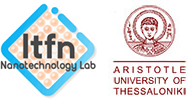 |
Nanotechnology Lab LTFN Aristotle University of Thessaloniki, Greece (Project Coordinator) www.ltfn.gr |
 |
University of Surrey, UK www.surrey.ac.uk |
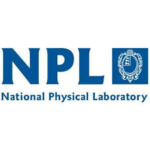 |
National Physical Laboratory, UK www.npl.co.uk |
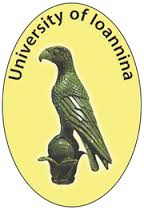 |
University of Ioannina, Greece www.uoi.gr |
 |
Fluxim, Switzerland www.fluxim.com |
| APEVA, Germany www.apeva.de |
|
| Granta Design, UK www.grantadesign.com |
|
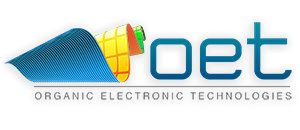 |
Organic Electronic Technologies, Greece www.oe-technologies.com |
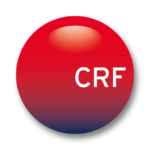 |
Centro Ricerche FIAT, Italy www.crf.it |
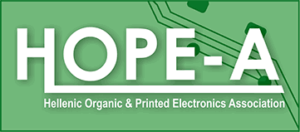 |
Hellenic Organic & Printed Electronics Association, Greece www.hope-a.com |
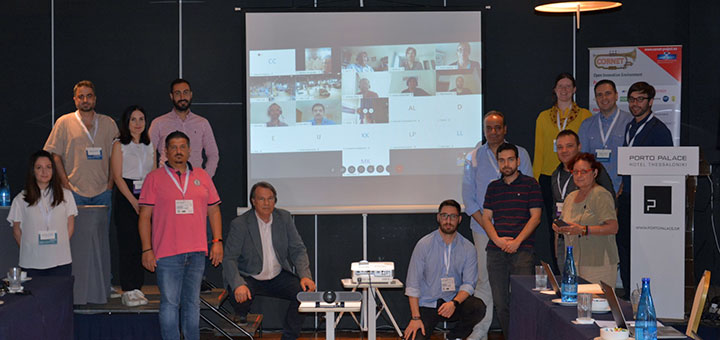 Live+Virtual M30 CORNET Consortium Meeting that took place at 5 July 2020 in Thessaloniki, Greece in the framework of the NANOTEXNOLOGY 2020 (www.nanotexnology.com)
Live+Virtual M30 CORNET Consortium Meeting that took place at 5 July 2020 in Thessaloniki, Greece in the framework of the NANOTEXNOLOGY 2020 (www.nanotexnology.com)
Press Release Preparation: LTFN/AUTh, HOPE-A
Acknowledgements
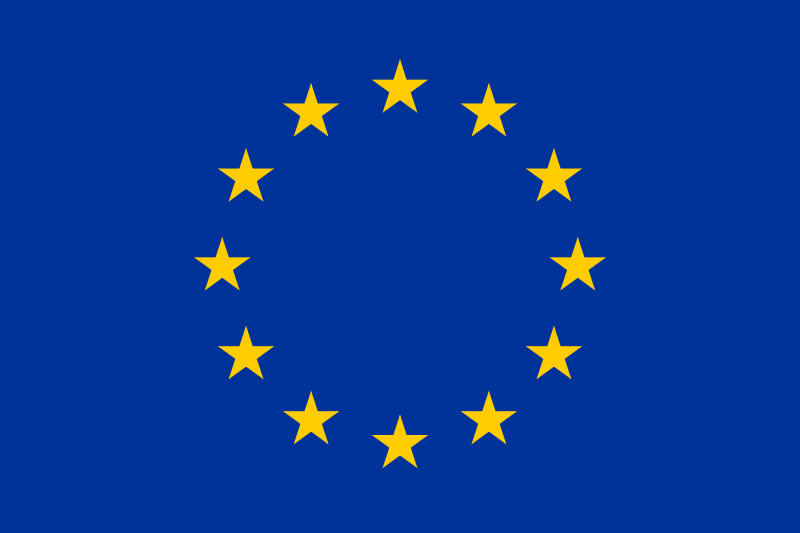 |
This project has received funding from the European Union’s Horizon 2020 research and innovation programme under grant agreement No 760949 |

